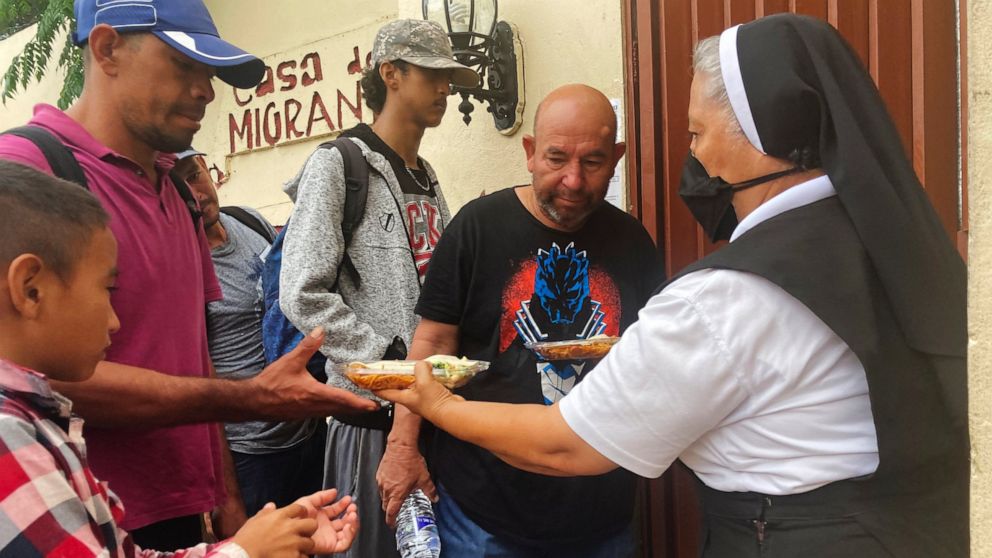PIEDRAS NEGRAS, Mexico — Opaque waiting lists at the Mexico border to gain a chance at obtaining asylum in the United States have persisted under President Joe Biden, leading many migrants to give up and cross illegally or languish for months in border towns.
U.S. preparations in late April to end pandemic-related limits on asylum led to the latest round of registering names. In Tijuana, an online registry run by advocacy group Al Otro Lado soared to about 50,000. In Piedras Negras, a migrant services center’s list ballooned to 2,000 before being halted.
Waiting lists were widely used under former President Donald Trump to deal with an increase in migrants from Mexico and Central America coming to the border, starting with large caravans in 2018. Circumstances are different now, but the process is similarly confusing. Migrants often don’t know how to sign up or that lists even exist.
The latest chaotic episodes come as a spike in border crossings has become a political flashpoint for Biden, with Republicans saying he’s not doing enough to stop them. At a meeting with Biden in Washington on Tuesday, Mexican President Andres Manuel López Obrador spoke of challenges that were brutally underscored by 53 migrants who died last month after being abandoned in a sweltering tractor-trailer in San Antonio.
U.S. Customs and Border Protection began taking 70 asylum-seekers a day in San Diego in late April — half chosen by Al Otro Lado, which prioritizes how long migrants have waited, and half by Border Angels, which selected from Tijuana migrant shelters.
The Biden administration says it prioritizes the most “vulnerable” — which may include LGTBQ migrants, those with severe medical conditions or those facing imminent physical danger in Mexico — but the criteria is vague and mysterious for many.
Nongovernmental organizations play a “critical role,” helping select migrants and communicating with U.S. authorities, CBP Commissioner Chris Magnus said in a recent interview.
“Is it a perfect system? Certainly not, but that has been a very important part of the equation, these relationships,” Magnus said.
When U.S. authorities told a small shelter in Ciudad Acuña that they wanted 26 families at the border crossing with Del Rio, Texas, false word spread that Magaly Pérez, director of the San Antonio Community Center, was managing a list.
“The next day we had 100 people at the door,” Pérez said. “The day after that we had 300…
Click Here to Read the Full Original Article at ABC News: International…

